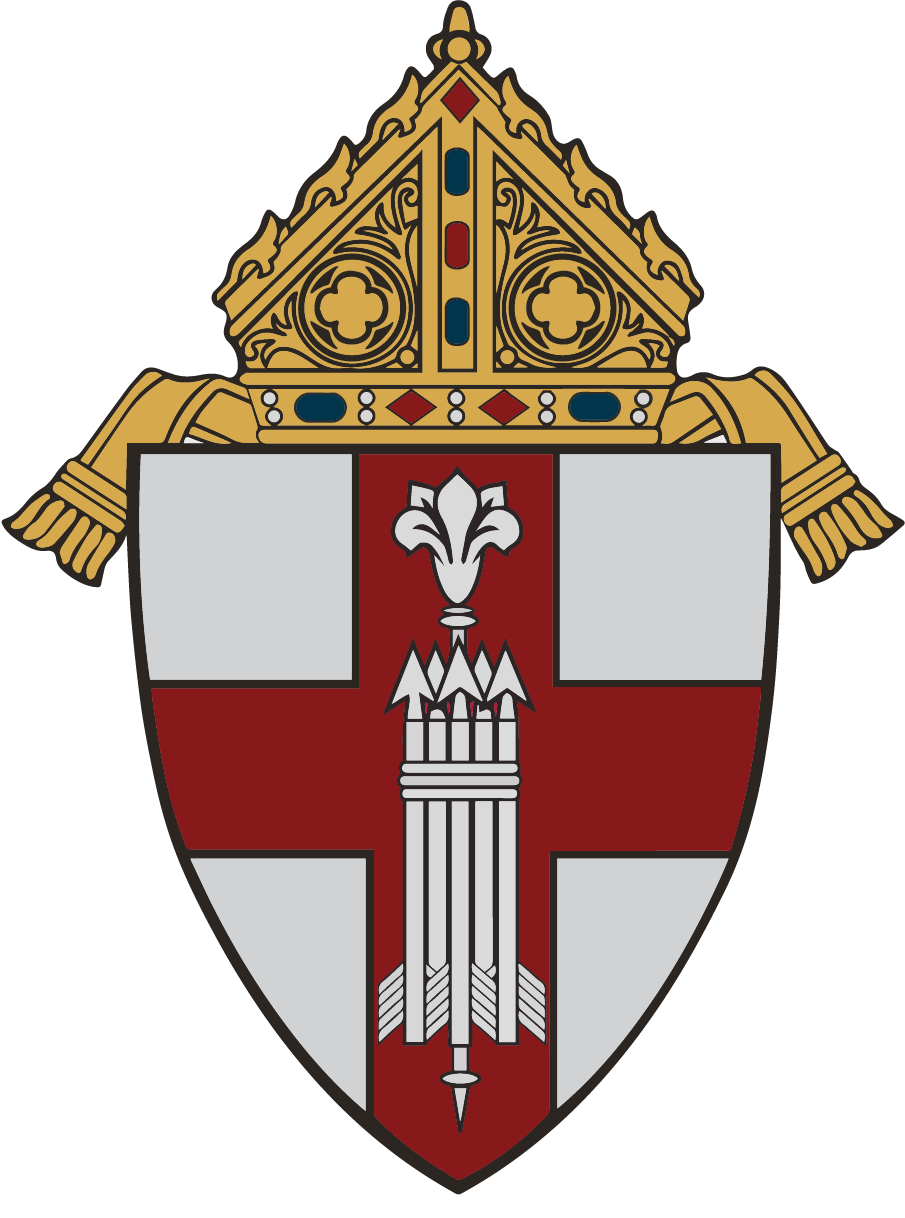Baptism
Amen, amen, I say to you, no one can enter the kingdom of God without being born of water and Spirit. (John 3:5)
Freed from Sin
Baptismal Symbols
- Water – The waters of baptism recall Jesus’ own baptism by John the Baptist in the river Jordan. Water is a symbol of cleansing and renewal as we begin a new life in Christ. We are washed clean of sin.
- Oil – At baptism we are anointed into the life of Christ as “priest, prophet and king.” A cross is traced on the candidate’s forehead as a reminder that we are inheritors of the Kingdom of God.
- Light – The baptismal candle is lit from the Paschal or Easter candle that stands in the church as a sign of Christ’s light in the world. At baptism, we receive the light of Christ and are called forth to share this light with the world.
- White garment – The white garment that is placed upon us at baptism is a symbol of Christ’s victory over death and his glorious resurrection. Likewise, the white garment or pall that is placed over the coffin at the time of death recalls our baptismal promises and reminds us that we are destined for eternal life.
Choosing Good Catholic Godparents
Choosing godparents for your child can be a difficult decision. Some stress over it and some don’t think about it enough. The Church lays out several guidelines for choosing sponsors for baptism.
First things first, you need to baptize that baby! “If you’re going to baptize your little baby, which is good to do, don’t delay it. Don’t wait until the baby is six months old or a year old—that’s very unwise. And if you’re saying, well we gotta wait for people to come up from Mexico or we gotta have people come over from Europe—just have a party when they get there. Baptize your baby as soon as is reasonably possible after the baby’s birth. It could be two weeks after the baby’s birth, it could be a month; but don't delay. Life is uncertain and we don’t know how things are going to go.
There are several requirements for choosing Catholic godparents that are outlined in the Code of Canon Law, 872-874:
- A godparent must be Catholic. “A baptized Catholic above the age of 16 years old … and the Catholic who is baptized must also have completed the Sacraments of the Holy Eucharist and Confirmation.” A baptized non-Catholic may not be a godparent but can serve as a witness along with a Catholic godparent.
- Godparents cannot be the parent of the child that is baptized.
- If the godparent is married, you must be married in the Catholic Church.
- A godparents needs to regularly attend Mass. The godparent need not be perfect, but must be making a good faith effort to be a good Catholic, to love the Lord and to grow close to Him.”
- The two godparents don’t have to be married to each other, but there can only be one male sponsor or one female sponsor, or one of each. In other words, you can’t have two godfathers or two godmothers.
- Non-baptized persons may not serve as a godparent. The role of the godparent who is making a promise before the parents, before the child, before the Church as a whole and before God, that to the extent that you are able to do something to help this child—whether there is some type of crisis, whether there is some detachment from the faith (maybe the parents go a-wire, they stop practicing the faith), you’re making a promise that you are going to do everything you can to assist that child in growing strong in the Catholic faith and loving Jesus.
It’s important to do your best to choose good godparents for your children. You can’t predict the future, you don’t know what’s going to happen down the road, but it’s important to be wise in the way you select a godparent. This is more than "I like this person.” Choose somebody who is serious about the faith, who loves Jesus, who is going to make good on the promise to have a connection with your child. Somebody who is hopefully not so old that he or she is likely to die before your child reaches adulthood. So, you want to take all these factors into account.
https://relevantradio.com/2018/05/how-to-choose-good-catholic-godparents/

